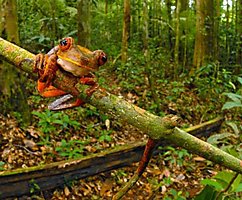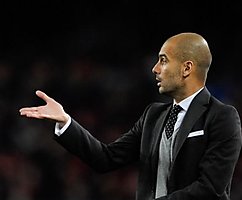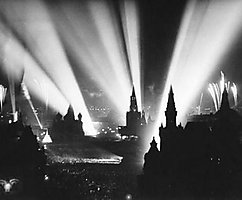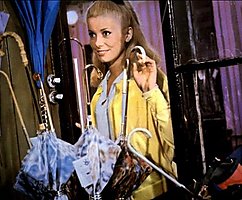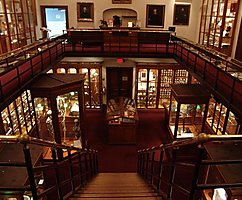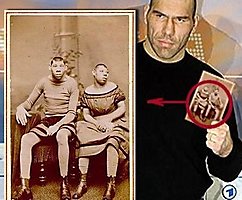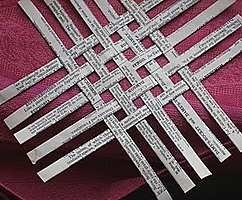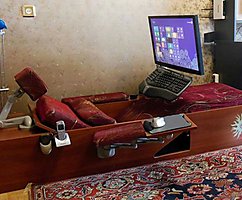22 books you should read before you quit your job and start your business
 Bashny.Net
Bashny.Net
Catherine Lavery, founder of projects Best Self and Calm The Ham, wrote a note on the selection of the 22 books she had to read, before you quit your job — to gain the ability to run their own business.
Recently, I visited a good friend with whom we studied together in University. He still works in the field of architecture, and this was our first meeting since I left this profession to pursue his own business.
During his visit we talked a lot about the architectural industry in General, that we don't like about her and why I, ultimately, decided it wasn't what I wanted. I describe moments in my work when I developed the design for upscale luxury apartments in the Lower East side and thought, "If I stay at my job, I'll never be able to live there".

Not that I dreamed of luxury penthouse and wardrobe handmade custom for $70,000 (Yes, that happened), but I dreamed of financial freedom and travel, as well as about how to work for yourself.
In that time, I worked in architecture, started a side project, Calm The Ham, which after 18 months of hard work began to bring a lot of money, especially compared to those $40,000 a year that I received at work (which is completely insufficient for living in new York).
I could have Calm The Ham only at night on weekdays and on the weekend that gradually became more and more difficult, as I had to balance work and her new life.
After 6 months my priority was to leave their more stable performance, I kept thinking — what if I had enough time and resources to constantly deal only with his new project? What could I create if I only focused on that?
Then followed by negative thoughts. I had no MBA. I never attended classes in business in high school. What I do know about running and growing your business? No, I'm not going to quit my job and enroll in the MBA program, and then open a business.
I have had neither the time nor the patience, nor the money. I had to learn the basic principles of business: how management and development.
I made a reading list consisting of books, which from heard someone that I admired or those that someone recommended to me personally. I spent $237,91 22 books, which at the time was enough for me a large attachment, and then I began to read.
Test "Read"
I was required to read 22 books before I was allowed to leave work in architecture. In January 2013, when I made this list, I was not eager to leave the corporate world, which was a great incentive to absorb as many books as possible.
Every morning and every evening during their travel on the subway, I tried to get as much knowledge as he knew — this is my key to salvation from working 9 to 5.
I quit my job Nov 26, 2013.
Here is a list of those books that helped me build not one, but two businesses.

Thinking and inspiration
1. "Reignite your inner giant" — Tony Robbins (Awaken The Giant Within — Tony Robbins)
An inspiring book by Tony Robbins. It is difficult to explain in one lesson I was able to make, but in General this book has the potential to change your life.
2. "Emissions: the story of success" Malcolm Gladwell (Outliers — Malcolm Gladwell)
Gives an understanding of the real success stories and talks about how people succeeded. Malcolm Gladwell presents the idea of mastering any skill for 10 000 hours. I especially liked the story of how hard work and luck (origin, place of birth or even date of birth) may have equal importance for success.
3. "The tipping point" — Malcolm Gladwell (The Tipping Point — Malcolm Gladwell)
Malcolm Gladwell explores the magic "tipping point", which reaches trend or idea, when they spread like wildfire.
4. The Millionaire Fastlane — MJ DeMarco (no publication in Russian)
To get rich — become a producer rather than a consumer, and stop selling your time for money. This book goes well with the concept of the book "Rich dad, Poor dad" (given below in the section "Finance").
5. "Good to great" — Jim Collins (Good to Great — Jim Collins)
The five-year study on the topic of what distinguishes good companies from great companies. This is a great book about making long-term plans for your company, as opposed to short-term amendments.
Productivity
6. "Four hour work week" — Tim Ferris (The Four Hour Work Week — Tim Ferris)
Earn more by working less — a completely alien concept, especially considering that I came from the architectural sphere where we often had to work beyond those hours for which we were paid. I realized the power of outsourcing. That alone is immeasurably increased my productivity. I recommend this book to everyone — entrepreneur or not.
7. "The cumulative effect" — Darren hardy (The Compound Effect — Darren Hardy)
I use the formula you learned from this book to become the best version of myself. The book is a basic manual on how to become successful and live an extraordinary life.
8. "The 80/20 Principle" By Richard Koch (The 80/20 Principles By Richard Koch)
Focus on critical tasks that require only 20% of efforts bring 80% of result. A very powerful concept, and I find it quite correct in my business. I have used them in Calm the Ham, to determine its key customers — those 20% that bring me 80% of income. And then I asked myself: how can I provide the best service to these people?
9. "The perfect sales machine" — Chet Holmes (The Ultimate Sales Machine — Chet Holmes)
Stop doing 4 thousand different things in my business. According to his "pig-headed discipline and distribution" instead, I should be able to perfectly accomplish 8 tasks 4000 times. The Chapter on time management in the book "the complete car sales" was extremely helpful, as I have had problems. Using the advice Chet Holmes, I did a great organizer to plan everything according to the severity of my problems. Later it evolved into a SELF Journal.
10. "Force of habit" — Charles Duhigg (The Power of Habit — Charles Duhigg)
By studying the nature of forming habits, I learned to get rid of their bad habits. Also the book provides a wonderful history of how corporations have used habits to sell your product (my favorite is the story about the toothpaste).
Business
11. "Sam sebe MBA" — Josh Kaufman (The Personal MBA — Josh Kaufman)
Excellent review everything I needed to know (and more) about the business, without all the bullshit and buzzwords.
12. "An economical startup" — Eric ries (The Lean Startup — Eric Reis)
Allocate resources so economically as possible to your business to be ready to respond quickly. A wonderful book about how to find the best use of limited resources.
13. "Startup for $ 100" — Chris Guilbaud (The $100 Startup — Chris Guillebeau)
Inspires the creation of a startup. You don't need big money to start a life full of adventure and possibilities. Proof: I started Calm The Ham for less than $500.
14. "Hobby — business" — Gary Vaynerchuk (Crush it — Gary Vaynerchuk)
Gary Vaynerchuk has written this wonderful book about how to turn your passion and Hobbies into a real business. He explained how he uses his addiction, social media and transparency in your business to crush your competitors.
15. "Entrepreneurial myth" — Michael Gerber (The E-Myth Revisited — Michael E. Gerber)
Intelligently allocate the case, so I can work on your business, not on cases. It gave me the freedom to increase your income and leave more free time for yourself.
16. "Purple cow" — Seth Godin (Purple Cow — Seth Godin)
The key to success is to be significant among my competitors and stand out in today's economy.
17. "ReWork: business without prejudice" — Jason fried and David Hansson Heinemeier (ReWork — Jason Fried & David Heinemeier Hansson)
A short but impressive book from the creators of 37 Signals. Stay young, work in conditions of limited resources and build less.
18. This Book Will Teach You How To Write Better — Neville Medhora (no publication in Russian)
A brief guide from Neville Medora from Appsumo gives an excellent understanding of copywriting, it helps to learn to write better, to turn people into their customers, and reveals some secrets of how to write simpler.
Sale
19. "It is human nature to sell" — Daniel Pink (To Sell is Human — Daniel Pink)
"Sales" is not a swear word. This book helped me to feel comfortable in the trade environment. It is great for understanding the concepts hiding behind the word "sales", and explains how to comprehend them.
20. "Perfect pitch" — Oren Cluff (Pitch Anything — Oren Klaf)
An excellent explanation of how to structure your selling calls or presentations, to make sure that the prospective client will bite. Comes from environment that is different from the trade, I find it particularly interesting.
Finance
21. "Rich dad, Poor dad" — Robert Kiyosaki (Rich Dad, Poor Dad — Robert T. Kiyosaki)
This book truly reveals the concept of wealth, assets, and liabilities. I remember riding the subway and thought, "Why didn't I read this book 10 years ago?" Better late than never.
Also interesting: the dream Job: the hard truth about working for yourself
9 signs that you are able to achieve more than everyone else
22. I Will Teach You To Be Rich — Ramit Sethi (no publication in Russian)
Personal Finance is not necessarily boring. I brought in my life the tactics of negotiations and saving from this book that helped me how to earn and save money.published
Source: vc.ru/p/22-books-before-quit
Recently, I visited a good friend with whom we studied together in University. He still works in the field of architecture, and this was our first meeting since I left this profession to pursue his own business.
During his visit we talked a lot about the architectural industry in General, that we don't like about her and why I, ultimately, decided it wasn't what I wanted. I describe moments in my work when I developed the design for upscale luxury apartments in the Lower East side and thought, "If I stay at my job, I'll never be able to live there".

Not that I dreamed of luxury penthouse and wardrobe handmade custom for $70,000 (Yes, that happened), but I dreamed of financial freedom and travel, as well as about how to work for yourself.
In that time, I worked in architecture, started a side project, Calm The Ham, which after 18 months of hard work began to bring a lot of money, especially compared to those $40,000 a year that I received at work (which is completely insufficient for living in new York).
I could have Calm The Ham only at night on weekdays and on the weekend that gradually became more and more difficult, as I had to balance work and her new life.
After 6 months my priority was to leave their more stable performance, I kept thinking — what if I had enough time and resources to constantly deal only with his new project? What could I create if I only focused on that?
Then followed by negative thoughts. I had no MBA. I never attended classes in business in high school. What I do know about running and growing your business? No, I'm not going to quit my job and enroll in the MBA program, and then open a business.
I have had neither the time nor the patience, nor the money. I had to learn the basic principles of business: how management and development.
I made a reading list consisting of books, which from heard someone that I admired or those that someone recommended to me personally. I spent $237,91 22 books, which at the time was enough for me a large attachment, and then I began to read.
Test "Read"
I was required to read 22 books before I was allowed to leave work in architecture. In January 2013, when I made this list, I was not eager to leave the corporate world, which was a great incentive to absorb as many books as possible.
Every morning and every evening during their travel on the subway, I tried to get as much knowledge as he knew — this is my key to salvation from working 9 to 5.
I quit my job Nov 26, 2013.
Here is a list of those books that helped me build not one, but two businesses.

Thinking and inspiration
1. "Reignite your inner giant" — Tony Robbins (Awaken The Giant Within — Tony Robbins)
An inspiring book by Tony Robbins. It is difficult to explain in one lesson I was able to make, but in General this book has the potential to change your life.
2. "Emissions: the story of success" Malcolm Gladwell (Outliers — Malcolm Gladwell)
Gives an understanding of the real success stories and talks about how people succeeded. Malcolm Gladwell presents the idea of mastering any skill for 10 000 hours. I especially liked the story of how hard work and luck (origin, place of birth or even date of birth) may have equal importance for success.
3. "The tipping point" — Malcolm Gladwell (The Tipping Point — Malcolm Gladwell)
Malcolm Gladwell explores the magic "tipping point", which reaches trend or idea, when they spread like wildfire.
4. The Millionaire Fastlane — MJ DeMarco (no publication in Russian)
To get rich — become a producer rather than a consumer, and stop selling your time for money. This book goes well with the concept of the book "Rich dad, Poor dad" (given below in the section "Finance").
5. "Good to great" — Jim Collins (Good to Great — Jim Collins)
The five-year study on the topic of what distinguishes good companies from great companies. This is a great book about making long-term plans for your company, as opposed to short-term amendments.
Productivity
6. "Four hour work week" — Tim Ferris (The Four Hour Work Week — Tim Ferris)
Earn more by working less — a completely alien concept, especially considering that I came from the architectural sphere where we often had to work beyond those hours for which we were paid. I realized the power of outsourcing. That alone is immeasurably increased my productivity. I recommend this book to everyone — entrepreneur or not.
7. "The cumulative effect" — Darren hardy (The Compound Effect — Darren Hardy)
I use the formula you learned from this book to become the best version of myself. The book is a basic manual on how to become successful and live an extraordinary life.
8. "The 80/20 Principle" By Richard Koch (The 80/20 Principles By Richard Koch)
Focus on critical tasks that require only 20% of efforts bring 80% of result. A very powerful concept, and I find it quite correct in my business. I have used them in Calm the Ham, to determine its key customers — those 20% that bring me 80% of income. And then I asked myself: how can I provide the best service to these people?
9. "The perfect sales machine" — Chet Holmes (The Ultimate Sales Machine — Chet Holmes)
Stop doing 4 thousand different things in my business. According to his "pig-headed discipline and distribution" instead, I should be able to perfectly accomplish 8 tasks 4000 times. The Chapter on time management in the book "the complete car sales" was extremely helpful, as I have had problems. Using the advice Chet Holmes, I did a great organizer to plan everything according to the severity of my problems. Later it evolved into a SELF Journal.
10. "Force of habit" — Charles Duhigg (The Power of Habit — Charles Duhigg)
By studying the nature of forming habits, I learned to get rid of their bad habits. Also the book provides a wonderful history of how corporations have used habits to sell your product (my favorite is the story about the toothpaste).
Business
11. "Sam sebe MBA" — Josh Kaufman (The Personal MBA — Josh Kaufman)
Excellent review everything I needed to know (and more) about the business, without all the bullshit and buzzwords.
12. "An economical startup" — Eric ries (The Lean Startup — Eric Reis)
Allocate resources so economically as possible to your business to be ready to respond quickly. A wonderful book about how to find the best use of limited resources.
13. "Startup for $ 100" — Chris Guilbaud (The $100 Startup — Chris Guillebeau)
Inspires the creation of a startup. You don't need big money to start a life full of adventure and possibilities. Proof: I started Calm The Ham for less than $500.
14. "Hobby — business" — Gary Vaynerchuk (Crush it — Gary Vaynerchuk)
Gary Vaynerchuk has written this wonderful book about how to turn your passion and Hobbies into a real business. He explained how he uses his addiction, social media and transparency in your business to crush your competitors.
15. "Entrepreneurial myth" — Michael Gerber (The E-Myth Revisited — Michael E. Gerber)
Intelligently allocate the case, so I can work on your business, not on cases. It gave me the freedom to increase your income and leave more free time for yourself.
16. "Purple cow" — Seth Godin (Purple Cow — Seth Godin)
The key to success is to be significant among my competitors and stand out in today's economy.
17. "ReWork: business without prejudice" — Jason fried and David Hansson Heinemeier (ReWork — Jason Fried & David Heinemeier Hansson)
A short but impressive book from the creators of 37 Signals. Stay young, work in conditions of limited resources and build less.
18. This Book Will Teach You How To Write Better — Neville Medhora (no publication in Russian)
A brief guide from Neville Medora from Appsumo gives an excellent understanding of copywriting, it helps to learn to write better, to turn people into their customers, and reveals some secrets of how to write simpler.
Sale
19. "It is human nature to sell" — Daniel Pink (To Sell is Human — Daniel Pink)
"Sales" is not a swear word. This book helped me to feel comfortable in the trade environment. It is great for understanding the concepts hiding behind the word "sales", and explains how to comprehend them.
20. "Perfect pitch" — Oren Cluff (Pitch Anything — Oren Klaf)
An excellent explanation of how to structure your selling calls or presentations, to make sure that the prospective client will bite. Comes from environment that is different from the trade, I find it particularly interesting.
Finance
21. "Rich dad, Poor dad" — Robert Kiyosaki (Rich Dad, Poor Dad — Robert T. Kiyosaki)
This book truly reveals the concept of wealth, assets, and liabilities. I remember riding the subway and thought, "Why didn't I read this book 10 years ago?" Better late than never.
Also interesting: the dream Job: the hard truth about working for yourself
9 signs that you are able to achieve more than everyone else
22. I Will Teach You To Be Rich — Ramit Sethi (no publication in Russian)
Personal Finance is not necessarily boring. I brought in my life the tactics of negotiations and saving from this book that helped me how to earn and save money.published
Source: vc.ru/p/22-books-before-quit
Tags
See also
Things to check before you buy water in a plastic bottle
Why is it IMPORTANT to wash new clothes before wear
Before you go on spring break
Inspect your shoes before you put on shoes
Friends took this picture before going to war. After 50 years, the incredible happened!
4 questions to ask before choosing a job
As the evil genius of our time could take over the world, or what it is worth considering before you start a business?
5 discomforting side effects of emigration, which nobody tells
How to conduct a secret correspondence in a world where you are constantly being watched: methods Edward Snowden

